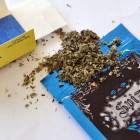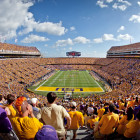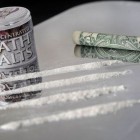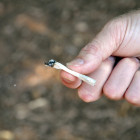
Fake Pot Once Again for Sale in Georgia Despite Ban
|
Packages of synthetic marijuana are once again available for sale legally, despite a law passed in March banning the drug, because manufacturers found a way around the ban, WSAV-TV in Savannah reports. As The Juvenile Justice Information Exchange reported last spring, synthetic marijuana, often known by the brand names K-2 or Spice, is created by spraying dried plant matter with a synthetic cannabanoid, a chemical that mimics the effects of THC, the psychoactive chemical that gives marijuana users their high. Lawmakers believed the legislation banning the drug—which made illegal the base chemical formula and any alterations of that formula—would close a loophole manufacturers of fake pot had used to skirt previous bans. "We identified the base formula,” state Senator Buddy Carter told WSAV-TV. “We said any deviation, any alteration of the base formula, would be illegal.




